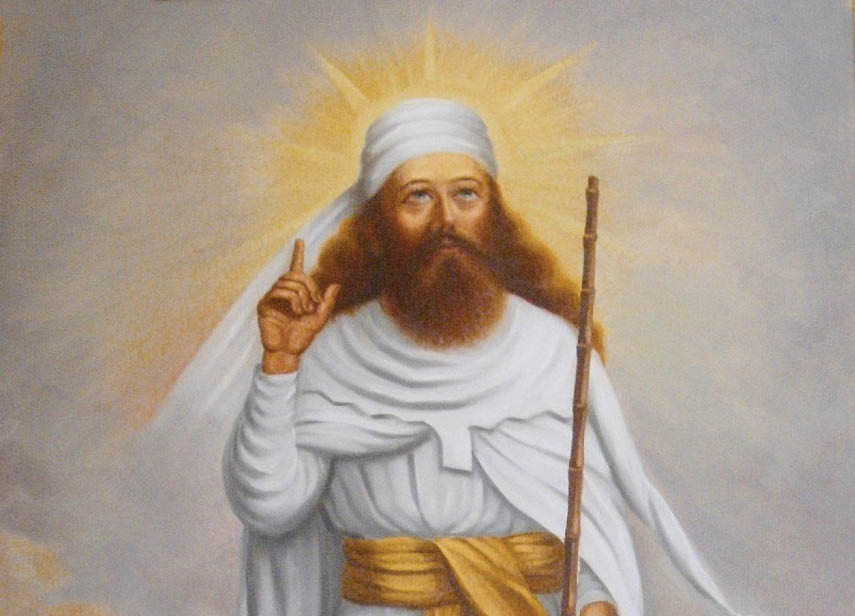Saal. Zoroastrians observe Khordad Roj (day) of Fravardin Mah (month) as Khordad Saal. This is the sixth day of the first month (Fravardin) of the Zoroastrian calendar.
The First Month: One often wonders why the new year begins with the month of Fravardin. Our most learned living scholar and High Priest, Dasturji Dr. Firoze M Kotwal explains: “We call Farvardin Roz as Farvardegan, and according to our scriptures, three Farvardin Roz are of great importance –in the months of Adar, Aspandard (last month of the calendar) and Farvardin (first month of the calendar). Zarathushtis have a belief about the Farvardin Roz in the month of Aspandard, that the righteous (Asho) souls (Ravaan) and Asho Farohars visit earth on that day, and after the Farvardegan, the souls and Farohar depart on Farvardin Roz and Farvardin month. Hence, the first Farvardin Roz is to welcome them and the second Farvardin Roz is to bid them farewell. The Farvardin Roz of the month of Adar is remembered because at the time of the last intercalation that was the first Farvardin Roz, and we want to keep that memory alive.”
Hence, the Zoroastrian calendar did not always begin with the month of Fravardin. Probably, when the Parsis came to India, the month of Adar was observed as the first month of the calendar.
Happy And Fortunate Month: Adar or Fravardin – both are auspicious. The month of Fravardin is dedicated to the Fravashi or Farohar, the prototype of all creation. In Zoroastrian tradition, while invoking Fravardin, we use the epitaph ‘Farokh’, which means fortunate and happy. Thus, we begin the new year invoking good fortune and happiness!
In our prayers, we recite, “Mah Farokh Fravardin,” meaning the happy and fortunate month of Fravardin. Indeed, what a wonderfully appropriate epitaph for the very first month of the year! A month of good fortune, happiness and dedicated to Holy Fravashis, often described as the guardian spirit. We view Fravashi or Farohar as a Divine Essence, which is wholly pure and good. It is not to be confused with the Ruwan or soul.
The Avesta term Fravashi comes from the word, “Fra” (to take forward) and “vaksh” (to grow). In other words, Fravashi is that spiritual essence or power that takes every good creation of Ahura Mazda forward and helps it grow.
Khordad-Sal: Doctrinally, Khordad is perceived as a Divine Aspect or Energy of Ahura Mazda which presides over ‘Time’ and ‘Perfection’. For this reason, the first Khordad Roj of the new calendar is celebrated as Khordad-sal-Khoday, i.e., ‘Khordad, Lord of the Year’. Homage is paid to this Divine Energy of ‘Time’ and ‘Perfection’ so that the year is filled with happiness, our time is well spent and our lives come closer to perfection.
Until a few decades ago, Khordad Sal used to be a general public holiday declared by the State Government!
Auspicious Day: In Zoroastrian tradition, a number of significant events are believed to have taken place on this blessed day. Gayomard (the first human being), Hooshang (the first King of ancient Iran), Kai Khosraw (a great and glorious King of Iran) and most important of all, Asho Zarathushtra, are believed to have been born on this auspicious day.
This day also signifies the triumph of good over evil, for on this day, Shah Jamsheed is believed to have virtually ushered freedom from death and disease; the great King Kai Khosraw vanquished the evil Afrasiab and King Vishtasp accepted Zarathushtra as a messenger of Ahura Mazda.
In ancient times, Parsis used to spend this auspicious day in prayer at home and of course, at the Agiary or Atash Behram. It is also considered meritorious to perform jashan ceremony on this day to invoke the blessings of Ahura Mazda and His Divine Energy of Perfection (Khordad).
Zarathustra’s Birthday: It is a happy coincidence that Khordad is the Divinity of Perfection and traditionally this day also commemorates the birth of Asho Zarathustra, whose message is timeless and perfect and will remain relevant and perfect in every era.
In the sacred Gatha, the Prophet tells us about the choice we all must exercise each day, using our mind which we must strive to illumine every single day of our lives, with the practice of right thoughts, good words and noble deeds. His was clearly a reflective religion of moral choice and consequences. He taught us to be righteous, not for the sake of any heavenly reward, but, simply for the sake of righteousness. He neither preached denial nor blood sacrifices. His vision and message is of Asha (Truth), Raadi (Charity) and Ushta (Happiness).
Aspire For Perfection: Perfection, of course, is relative. To many of us, perfection would perhaps mean something that perfectly corresponds to a specific requirement, rather than being perfect in an absolute sense. At times, perfection is accepting the fact that we live in a world that is perfect in its imperfections.
Human beings by nature are fallible and therefore many consider perfection as non-existent. Many even encourage living out one’s imperfections. However, while agreeing that perfection may not be attainable, if we pursue perfection, we can at least attain excellence!
To conclude, we live in what Late Dasturji Dr. Maneckji Dhalla used to call, “our perfecting world,” that’s still far away from the perfect world that Zarathushtra envisioned. But, Zarathushtra has given us a roadmap that can help us take a few steps towards His ideal. Religion is a way of life. Live it. Live it with truth, charity and happiness and that’s all we need to make this world a better place to live in!
Khordad Sal Mubarak!
- In Search Of The Soul - 5 April2025
- Why Pray In A Language We Do Not Understand? - 29 March2025
- Celebrate Nature’s New Year With Purity And Piety of Ava - 22 March2025
